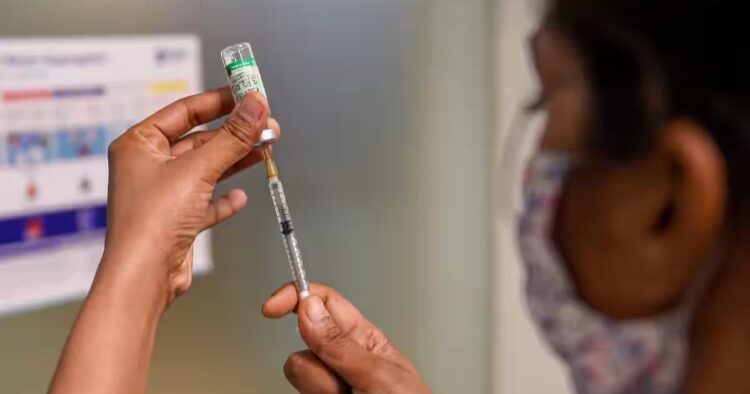A week after AstraZeneca withdrew its COVID-19 vaccines worldwide, a concerning discovery has emerged. The vaccine, developed with Oxford University, has been linked to a rare but serious blood clotting disorder called vaccine-induced immune thrombocytopenia and thrombosis (VITT).
This disorder emerged after people received the Oxford-AstraZeneca vaccine, known as Covishield in Bharat and Vaxzevria in Europe, during the peak of the COVID-19 outbreak in 2021.
Researchers have identified that the cause of VITT is an unusually dangerous blood autoantibody directed against a protein called platelet factor 4 (PF4). Studies conducted in 2023 by experts from Canada, North America, Germany, and Italy found a similar condition linked to the PF4 antibody, which could prove fatal after contracting a natural adenovirus infection, commonly associated with the common cold.

Recent study led by Australia’s Flinders University, experts discovered that PF4 antibodies in adenovirus infection-associated VITT and classic adenoviral vector VITT shared similar molecular fingerprints.
Professor Tom Gordon from Flinders University emphasized that the pathways of lethal antibody production in these disorders are virtually identical and have similar genetic risk factors.
These findings hold significant clinical implications. Lessons learned from VITT are applicable not only to rare cases of blood clotting after adenovirus infections but also to vaccine development. This suggests a need for caution and further investigation in the development of adenovirus-based vaccines.
Positive Development in AstraZeneca’s Fight Against COVID-19
Despite the concerning news about its vaccine, AstraZeneca has announced a positive development in the fight against COVID-19. As per news reports, the company revealed that its COVID-19 prevention treatment, sipavibart, successfully lowered the risk of infection among individuals with compromised immune systems.
Sipavibart, a long-acting antibody therapy, showed a statistically significant reduction in symptomatic COVID-19 cases among immunocompromised patients during a late-stage trial. Iskra Reic, the company’s Executive Vice President for Vaccines and Immune Therapies, emphasized the importance of this development.
Immunocompromised patients often have limited options for COVID-19 protection and face a significant burden of disease, even after vaccination.
AstraZeneca aims to work with regulatory authorities globally to make sipavibart available to these vulnerable patients, providing them with much-needed protection against COVID-19.

















Comments